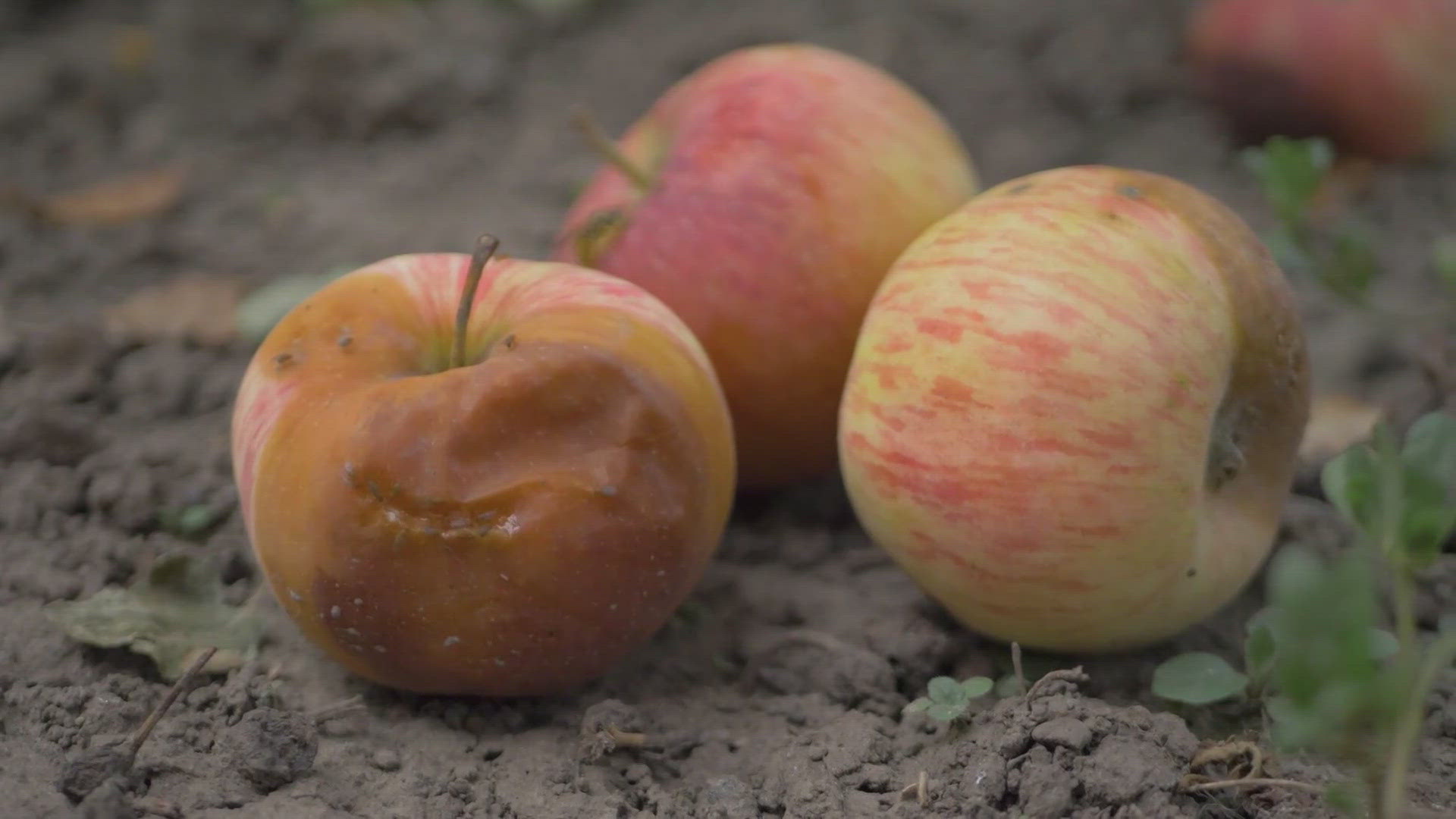WASHINGTON — You may remember a story we first told you about in February about how University of Maryland engineers are using crab shells to create sustainable batteries. Well, the Terrapins are at it again. This time, using materials from crab shells to help extend the shelf life of fresh produce.
The idea behind this seafood waste product that removes harmful chemicals from produce came to fruition during the pandemic.
"During that period, people spend a lot of time in the kitchen," explained Yimin Mao from the Department of Material Science and Engineering Department at the University of Maryland.
Now five years later, researchers from the Departments of Material Science and Engineering and Nutrition Food Science at UMD have a product that also keeps produce fresher for up to 10 days longer.
Mao said, "If you can extend the shelf life and allow people to have time to evenly distribute that and then that can be a big deal."
Mold that can sometimes quickly appear on your produce is common ─ particularly in our climate.
"Especially in Maryland's area, we have a very high humidity," said Peihua Ma, a Post Doctoral Associate from the University of Maryland.
And while that mold can be harmful to your health, chemicals we can't see can be even worse. Pesticides and herbicides often found on fruits and vegetables have been linked to severe health problems.
"You have artery diseases, you have kidney failure, you have cancer all indirect related to that," adds Mao. "This is directly linked to human health."
The topical solution is made of chitosan, a polymer found in shellfish waste like crabs, shrimp and lobster.
And it's applied to produce while it's being processed before it even hits the shelves of your local grocery store. So all you have to do when you get home is wash it like you normally would.
All of the chemicals and materials that went into this product are Generally Recognized as Safe, a designation awarded by the Food and Drug Administration and can be mass produced at a low cost.

